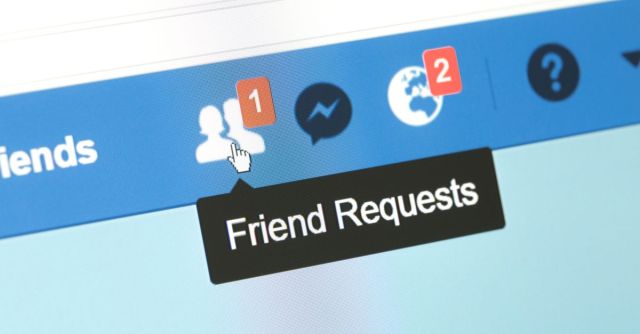Are your Facebook friends bellyaching about having received another friend request from you? Specifically, sending you a message that reads uncannily like this one?
Hi … I actually got another friend request from you yesterday … which I ignored so you may want to check your account. Hold your finger on the message until the forward button appears … then hit forward and all the people you want to forward too … I had to do the people individually. Good Luck!
It doesn’t make sense if you stop and think about it.
Why would you have sent a friend request to somebody you’re already friends with? And then why in the world would you uncritically send this message to your Facebook friends?
The short answers are that you wouldn’t and you shouldn’t.
You should delete the message and ignore the instructions to forward it because it’s a hoax, trying to get you to believe that your account has been cloned.
Account cloning happens when somebody steals your profile pictures and your name to set up a new account. When the account is set up they send out friend requests that appear to come from you, pulling your friends into their web of lies.
But that isn’t what’s going on here, this is a hoax.
There was a wave of cloned Facebook accounts hitting up friends with spam and requests for money back in 2013. It also happened in 2016, when one user’s friends started getting requests for money from an account whose profile looked like his.
Despite all the clone-warning posts cluttering up people’s feeds lately, Facebook told Syracuse’s NewsChannel 9 that there’s been no uptick in cloned accounts over the past week. Nor is this viral message connected to the big data breach that Facebook discovered at the end of September, it says.
A cloned-account wave starts when somebody uncritically accepts a friend request from an attacker who looks like somebody the target thinks they know. Instead of investigating who the sender really is, people go ahead and accept the request. From there, the new “friend” can scrape images and other information from victims’ personal Facebook account and use them to create a profile under those people’s names.
It grows like fungus after that. Using a cloned account and a victim’s friend list, the attacker can then send friend requests to their target’s friends. Many will accept, given that such requests, at least superficially, look like they’re coming from somebody they know.
However, if you suspect that your Facebook account really might have been cloned, you can try contacting a few Facebook friends directly to check whether any of them had indeed recently received a duplicate friend request from you. You can also search Facebook for accounts with names and profile pictures identical to yours.
Should you find a cloned account, use Facebook’s “Give feedback or report this profile” link to have the unauthorized account deactivated. That’s up at the top right side of an account page, accessible by clicking on the three dots, like so:
This might not actually be a malicious hoax. It could be that well-meaning people have been sending the message without really thinking it through. But does it matter? In the end, the intent isn’t as important as the effect it produces: getting people needlessly freaked out and marching in lockstep to spread the FUD.
Don’t march to that drummer!

